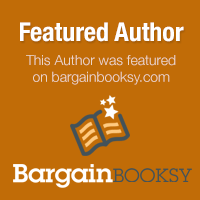Self-Publisher: To Be or Not To Be
February 3, 2012
Self-publishers, also known as independent publishers have leveled the playing field. The day of the joint media/publishing conglomerates with their teams of agents and editors singularly controlling publishing success is over. The internet with a certain ease now allows writers to publish, promote. and sell their books directly to the public. That’s not to say there are no disadvantages to self-publishing. There is the stigma perpetuated by traditional publishing interests aided by ignorant and careless authors.
Author Gloria Mallette in the February 2012 Writer’s Magazine tells of her self-publishing success after years of rejection. She self-published Shades of Jade, and sold 13,000 copies in 2001. Random House noticed her success and wanting a piece of the action reached out while she was feeling overwhelmed with the time consuming self-publishing process. When asked about the change back to self-publishing she explained after publishing 2 books with Random House and 4 books with Kensington Books she returned to self-publishing because Kensington wanted her to write erotica which she refused to do.
There are numerous best seller success stories. Among the advantages of independent publishing control is ranked as number one. Many prefer total control and time becomes a factor while a traditional publishing contract may take anywhere from 18-24 months before the title is in print. The question is whether you’re willing to take on that responsibility specifically the costs. A self publisher is responsible for all cost related to production and promotion, and there are no substantial advances commonly offered by traditional publishing houses. But the good thing is you don’t have to worry about not earning out your advance or being dropped without an option for another book. Incidentally 70-80% of traditionally published authors fail to earn out their advance. An independent publisher controls his own royalties, properties, and operating costs.
Beware, the greatest pitfall is the loss of objectivity. It is absolutely imperative the outside publisher seek outside editorial and business advice. This can often be provided through a self publishing company or the self reliant may prefer to seek out their own team of professional consultants for expert advice on editing, book design, promotional and legal matters. Three reference guides helped me through the process: Peter Bowerman’s The Well-Fed Self-Publisher, How to Turn One Book into a Full-Time Living, and Marilyn Ross’s The Complete Guide to Self-Publishing.
Make no mistake about it, publishing is a business and you would do well to appreciate it as such. There is a lot to learn, marketing, publicity, technology, legal and industry regulations. A professional writer is a very small business of one person; a solo trader in literary ideas. Those who are not businesslike are unlikely to survive. Competition in the market is stiff and your product should be of the highest quality. The learning curb is steep, but you don’t have to go it alone. A great deal of support can be found throughout the industry. National associations like the Indpendent Book Publishers Association and the regional Mid-Atlantic Independent Publishers Association offer marketing support and educational resources.
If you would rather just write and not be bothered with business details then by all means continue writing and querying agents sooner or later you’ll get that break. It will more likely be later, the ebook and internet have upended traditional publishing with increased competition and publishers are less likely to gamble on new writers unable to prove their profitability and ability to garner a readership. Alternatively, if you want to write and run your own business you’ll no doubt embrace the challenges of self publishing. So roll up your sleeves, there’s work to be done.




